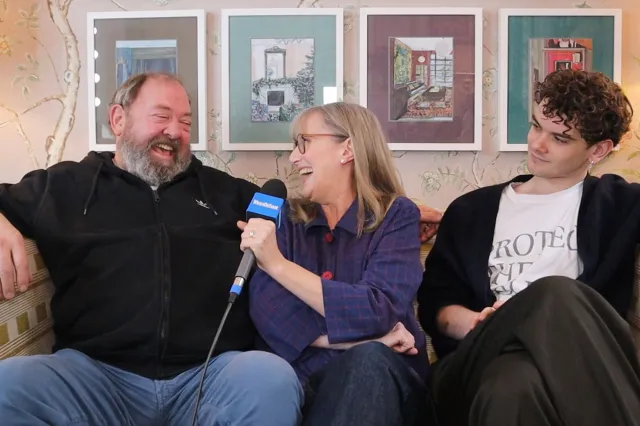Shakespeare's Globe: 'Without emergency funding from government, we will not be able to survive this crisis'
The Globe provided a testimonial for the Digital, Culture, Media and Sport Committee

© Tristram Kenton
Shakespeare's Globe is one of the organisations highlighted as being in serious jeopardy in a new letter from the Digital, Culture, Media and Sport (DCMS) Committee to the Culture Secretary Oliver Dowden.
The DCMS Committee has issued a stark warning to Dowden in a new letter published today, stating that "The Government needs to step up for cultural institutions. Additional financial support needs to be provided to individuals and institutions in the creative industries that are unsuccessful or ineligible for Arts Council England (ACE) funding."
Evidence submitted to the Committee today came from the likes of Donmar Warehouse, the Globe and Andrew Lloyd Webber's Really Useful Group.
The Globe stated that: "Without emergency funding
from government, the impact of COVID-19 will result in the closure of some of the most significant and well-loved cultural institutions in the UK. Despite being well-managed, well-governed, and – crucially – able to operate without public subsidy, we will not be able to
survive this crisis."
The venue does not currently receive any regular funding from ACE and is not a National Portfolio Organisation. According to the theatre, "Emergency Response Fund for organisations outside the National Portfolio was capped at £35,000 and our application was unsuccessful, so this avenue of support has not met our needs."
In terms of long-term forecasts without intervention, the Globe was blunt: "We will be forced to close. Without emergency funding and the continuation of the Coronavirus Job Retention Scheme, we will spend down our reserves and become insolvent." Without emergency funding, the company says, the Globe will also be forced to reduce its artistic and educational output, adding that "with a refocusing on operational survival, our ability to offer affordable tickets will be compromised." The venue currently offers 180,000 tickets at £5, with 50 per cent of tickets at £25 or less. It also provides £2 million pounds' worth of free tickets to schoolchildren.
The venue has offered solutions, saying that "A new scheme whereby the government purchases in advance up to 20 per cent of Globe tickets for the next five years for disbursement to groups experiencing barriers to engagement would improve cash-flow."
The theatre is asking for donations, with more information here.
The Donmar Warehouse in Covent Garden has stated that: "Unless we now cancel a forthcoming and essential capital project, we will have no funds to transition our model to a more sustainable one, create artistically adventurous work with inherent risk, cashflow the business or cushion the effects of any further crisis or downturn."
The capital project is a necessity, the Donmar says. "The cancellation/delay of the project means there is a high likelihood of equipment failure in the near future and will put the business continuity of the theatre at risk, even if we survive the COVID-19 emergency."
The venue has asked that the government extend the current job retention scheme for the entertainment sector until spaces are legally allowed to re-open at 100 per cent of their normal capacity. The Donmar is also asking for support.
For Andrew Lloyd Webber's Really Useful Group, the closures of shows is resulting in "£6.15 million lost in box office sales each week… and a £240,000 loss in average weekly earnings for RUG."
Their testimonial also states that "Insurance companies in the UK appear to be very slow to appoint loss adjusters, process claims and pay out or are not paying out at all." This is in contrast with insurance providers in the US, RUG says, where some productions have already received initial insurance payouts of "several million dollars."
RUG predicts that, without support, the COVID-19 outbreak "may
result in the theatres themselves (both West End and regional theatres) having to endure increased dark periods without any programming…and in some cases the possibility of theatres closing permanently or being sold for alternative uses."
RUG has highlighted a number of measures being done in other territories – for example – training staff to utilise temperature scanning technology, making it venue protocol for everyone to wear masks and for testing and tracking initiatives to be made widely available.
The DCMS committee also added that, if there is no intervention, "The Theatres Trust anticipates the closure of a significant proportion of theatres and a lasting impact on the UK's position as a world leader in the sector."












